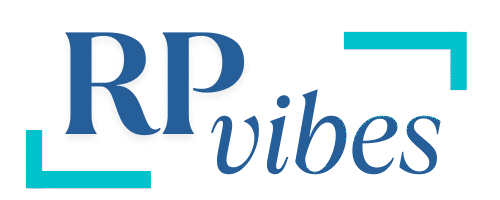Investing in Real Estate for Beginners: 5 Ways to Get Started
Table of Contents
Whether you are a seasoned investor or a young professional just starting your career, a piece of real estate should always be your top selection. This blog covers the most commonly seen 6 niches to starting investing in real estate for beginners.
One of the best scenes in the movie The Founder must be the finance guy Harry explained to Mr. Krock that he is actually in the real estate business and then proclaims “Land, that’s where the money is”. This scene revealed the real reason why McDonald’s became such a dominant franchise, not because it gets a small percentage of cut off a burger, but by owning the land on top of which the burger is cooked.
The same truth still holds in today’s world, as I am writing this blog post in 2025. There are more diverse means of getting into real estate investing and here are the most commonly seen 6 niches for beginners.
1. Turnkey Rental Property
Rental property always comes first when people think about real estate investing. There are many type of properties that are all used as rental properties, like single family house, multi-family, office suite, flex warehouse, and strip malls. Turnkey simply means the property is ready to move in and no more repair or update is needed.
Out of all these types of real estate, 2 to 4 unit multi-families are definitely the best for beginners to start with. The reason is simple and it is because of such real estate usually has higher Return of Investment (ROI). It is unsurprising to see a 4-family rental property with over 20% ROI.
A 2 to 4-unit multi-family, to the eye of most banks, is still a residential property, therefore, people could obtain a conventional fixed-rate mortgage to finance the deal. Compared to commercial mortgage, a conventional fixed-rate mortgage usually comes with a lower interest rate and easier underwriting criteria. A lower interest rate means a lower monthly payment, which means more cash flow into your pocket.
The same situation also applies to the insurance premium, common area utilities, and other expenses. Such a multi-family brings more rental income from multiple units while the owner pays lower operational expenses that are comparable to a single-family house. This type of rental property is truly the best type for someone who starts investing in real estate as a beginner.
| Pros | Cons |
|---|---|
| Higher ROI | Competitive Market |
| Easier to Finance | Landlording can be overwhelming for beginner investors |
| Easier to Sell |
2. Real Estate Syndication Company
A real estate syndication company is one whose managing member, syndicator, or sponsor pitches to the public and pools capital from those who are interested and become limited partners of the company. The syndicator then uses the capital to acquire, renovate, stabilize, and manage the real estate investment.
Becoming a limited partner of a real estate syndication company is another great starting point for beginners, because it is one of the most passive ways of investing in real estate. The syndicator is the one who is responsible for generating the profit. The limited partner only needs to fund the company, and the rest is to get paid and reported on with project progression.
For those who have just started and want to build their real estate empire, investing through a syndicator has the benefit of experiencing the state-of-the-art real estate investing and learn from those who know how to invest in real estate at a high level.
| Pros | Cons |
|---|---|
| Passive Income | Performance heavily reply on syndicator |
| Access to bigger deals | Money usually locked in for multiple years |
| Worryfree Property Management |
3. House Hacking
House hacking is a niche through which investors rent out part of the house they are living in. The property can be a single-family house or a multi-family house. The part that is rented out can be a room or one of the units, or even just the garage.
This niche is highly recommended for beginner investors because it takes much less effort. There is no need to acquire a new property, and most of the property management expenses can be neglected unless major repairs are needed in the rented space.
For those beginners who are investing more aggressively, House hacking can also be done through acquiring new property by founding the deal with a FHA loan or VA loan. These loans has down payment requirement as low as 3.5%. The owner usually has to stay in the property for at least one year and then the property can be converted completely to a rental property. Therefore, this sub-niche of house hacking is a good choice for beginners.
| Pros | Cons |
|---|---|
| Minimum operational expenses | Loss of privacy |
| Easier to fund | Responsibility of being landlord |
| Easier to manage | Zoning or HOA restrictions |
4. Flipping
Credit to the HGTV shows, Flipping Has become the most widely known method of getting into real estate investing. However, it can be seen in the show that investors need to spend large amount of a time, effort, and money into flipping. Investors also need to negotiate with the contractors, vendors, real estate agents, and many different kinds of people. Flipping is very labor-intensive.
Risks must be carefully evaluated before every beginner gets into flipping. Use myself as an example, I was getting way too comfortable after 5 or 6 investments, we wasn’t paying enough attention when I was buying a distressed duplex, I quickly viewed the basement without sufficient lighting and thought everything looked fine. Once the flipping started, the contractor found the foundation has one side of the wall be pushed in and it would fail any inspection down the road. I ended up paying an extra $40,000 to jack up the whole house and replace the entire foundation. This kind of risk is something that beginner investors have to be extremely careful of.
If you are a beginner investor who wants to be more Passively Involved, Flipping may not be a good option. But if you are committed to real estate investing and want to build your real estate empire, flipping should be your priority, and you may want to look into the BRRRR strategy that is advocated by BiggerPockets.
| Pros | Cons |
|---|---|
| Build Equity Fast | Higher Risk |
| Many Tax Breaks | Large Capital Upfront |
| Potential to Maximize ROI |
5. Wholesaling
Wholesaling is a niche in which wholesalers find outdated or distressed properties and then get them under contract at a very low price. The contract has an assignment clause that allows the wholesalers to assign the contract to a third party. In most cases, the wholesalers assign the contract to other investors at a higher price without any repair or upgrade to the properties. The wholesalers are getting paid by the price difference of executing and assigning the contract.
I have been witnessing a local wholesaler here in the New Haven, CT area, starting as a solo wholesaler and becoming a very well-established real estate investment company that reaches properties that are very hard for most investors to get access to. Wholesaling is a legitimate niche for beginners to get into real estate investing, for it requires minimal capital to start with, and it pays really well if the deal is closed successfully.
However, wholesaling itself does not help investors hold any tangible asset. It feels more like a telemarketer who cold-calls property owners hour by hour in order to get someone who is interested. In order to be successful in wholesaling, one needs to be faithful and persistent.
| Pros | Cons |
| Minimal Capital Needed | Potential Legal Issue |
| Quick Profit | Unstable Income |
| Low Financial Risk | Requires Strong Sales Skills |
This post introduces 5 ways for beginners to get started in investing in real estate. Each method has tremendous potential to lead to financial freedom.







